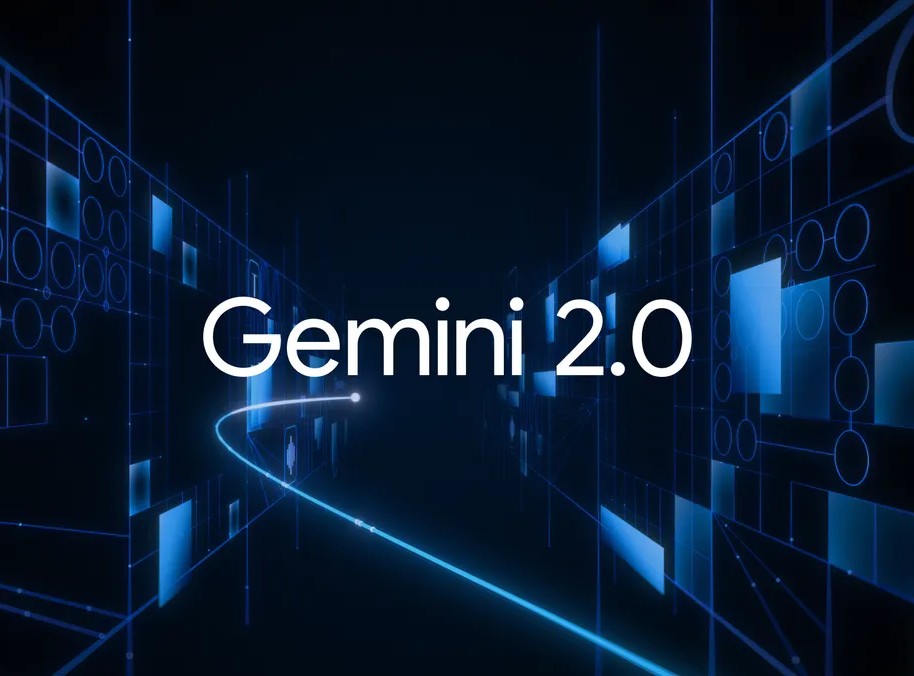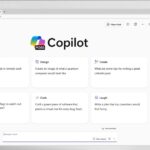Google CEO Sundar Pichai has announced the launch of Gemini 2.0, a model that represents the next step in Google’s ambition to revolutionise AI.
A year after introducing the Gemini 1.0 model, this major upgrade incorporates enhanced multimodal capabilities, agentic functionality, and innovative user tools designed to push boundaries in AI-driven technology.
Leap towards transformational AI
Reflecting on Google’s 26-year mission to organise and make the world’s information accessible, Pichai remarked, “If Gemini 1.0 was about organising and understanding information, Gemini 2.0 is about making it much more useful.”
Gemini 1.0, released in December 2022, was notable for being Google’s first natively multimodal AI model. The first iteration excelled at understanding and processing text, video, images, audio, and code. Its enhanced 1.5 version became widely embraced by developers for its long-context understanding, enabling applications such as the productivity-focused NotebookLM.
Now, with Gemini 2.0, Google aims to accelerate the role of AI as a universal assistant capable of native image and audio generation, better reasoning and planning, and real-world decision-making capabilities. In Pichai’s words, the development represents the dawn of an “agentic era.”
“We have been investing in developing more agentic models, meaning they can understand more about the world around you, think multiple steps ahead, and take action on your behalf, with your supervision,” Pichai explained.
Gemini 2.0: Core features and availability
At the heart of today’s announcement is the experimental release of Gemini 2.0 Flash, the flagship model of Gemini’s second generation. It builds upon the foundations laid by its predecessors while delivering faster response times and advanced performance.
Gemini 2.0 Flash supports multimodal inputs and outputs, including the ability to generate native images in conjunction with text and produce steerable text-to-speech multilingual audio. Additionally, users can benefit from native tool integration such as Google Search and even third-party user-defined functions.
Developers and businesses will gain access to Gemini 2.0 Flash via the Gemini API in Google AI Studio and Vertex AI, while larger model sizes are scheduled for broader release in January 2024.
For global accessibility, the Gemini app now features a chat-optimised version of the 2.0 Flash experimental model. Early adopters can experience this updated assistant on desktop and mobile, with a mobile app rollout imminent.
Products such as Google Search are also being enhanced with Gemini 2.0, unlocking the ability to handle complex queries like advanced math problems, coding enquiries, and multimodal questions.
Comprehensive suite of AI innovations
The launch of Gemini 2.0 comes with compelling new tools that showcase its capabilities.
One such feature, Deep Research, functions as an AI research assistant, simplifying the process of investigating complex topics by compiling information into comprehensive reports. Another upgrade enhances Search with Gemini-enabled AI Overviews that tackle intricate, multi-step user queries.
The model was trained using Google’s sixth-generation Tensor Processing Units (TPUs), known as Trillium, which Pichai notes “powered 100% of Gemini 2.0 training and inference.”
Trillium is now available for external developers, allowing them to benefit from the same infrastructure that supports Google’s own advancements.
Pioneering agentic experiences
Accompanying Gemini 2.0 are experimental “agentic” prototypes built to explore the future of human-AI collaboration, including:
- Project Astra: A universal AI assistant
First introduced at I/O earlier this year, Project Astra taps into Gemini 2.0’s multimodal understanding to improve real-world AI interactions. Trusted testers have trialled the assistant on Android, offering feedback that has helped refine its multilingual dialogue, memory retention, and integration with Google tools like Search, Lens, and Maps. Astra has also demonstrated near-human conversational latency, with further research underway for its application in wearable technology, such as prototype AI glasses.
- Project Mariner: Redefining web automation
Project Mariner is an experimental web-browsing assistant that uses Gemini 2.0’s ability to reason across text, images, and interactive elements like forms within a browser. In initial tests, it achieved an 83.5% success rate on the WebVoyager benchmark for completing end-to-end web tasks. Early testers using a Chrome extension are helping to refine Mariner’s capabilities while Google evaluates safety measures that ensure the technology remains user-friendly and secure.
- Jules: A coding agent for developers
Jules, an AI-powered assistant built for developers, integrates directly into GitHub workflows to address coding challenges. It can autonomously propose solutions, generate plans, and execute code-based tasks—all under human supervision. This experimental endeavour is part of Google’s long-term goal to create versatile AI agents across various domains.
- Gaming applications and beyond
Extending Gemini 2.0’s reach into virtual environments, Google DeepMind is working with gaming partners like Supercell on intelligent game agents. These experimental AI companions can interpret game actions in real-time, suggest strategies, and even access broader knowledge via Search. Research is also being conducted into how Gemini 2.0’s spatial reasoning could support robotics, opening doors for physical-world applications in the future.
Addressing responsibility in AI development
As AI capabilities expand, Google emphasises the importance of prioritising safety and ethical considerations.
Google claims Gemini 2.0 underwent extensive risk assessments, bolstered by the Responsibility and Safety Committee’s oversight to mitigate potential risks. Additionally, its embedded reasoning abilities allow for advanced “red-teaming,” enabling developers to evaluate security scenarios and optimise safety measures at scale.
Google is also exploring safeguards to address user privacy, prevent misuse, and ensure AI agents remain reliable. For instance, Project Mariner is designed to prioritise user instructions while resisting malicious prompt injections, preventing threats like phishing or fraudulent transactions. Meanwhile, privacy controls in Project Astra make it easy for users to manage session data and deletion preferences.
Pichai reaffirmed the company’s commitment to responsible development, stating, “We firmly believe that the only way to build AI is to be responsible from the start.”
With the Gemini 2.0 Flash release, Google is edging closer to its vision of building a universal assistant capable of transforming interactions across domains.
See also: Machine unlearning: Researchers make AI models ‘forget’ data
Want to learn more about AI and big data from industry leaders? Check out AI & Big Data Expo taking place in Amsterdam, California, and London. The comprehensive event is co-located with other leading events including Intelligent Automation Conference, BlockX, Digital Transformation Week, and Cyber Security & Cloud Expo.
Explore other upcoming enterprise technology events and webinars powered by TechForge here.
Read the full article here













